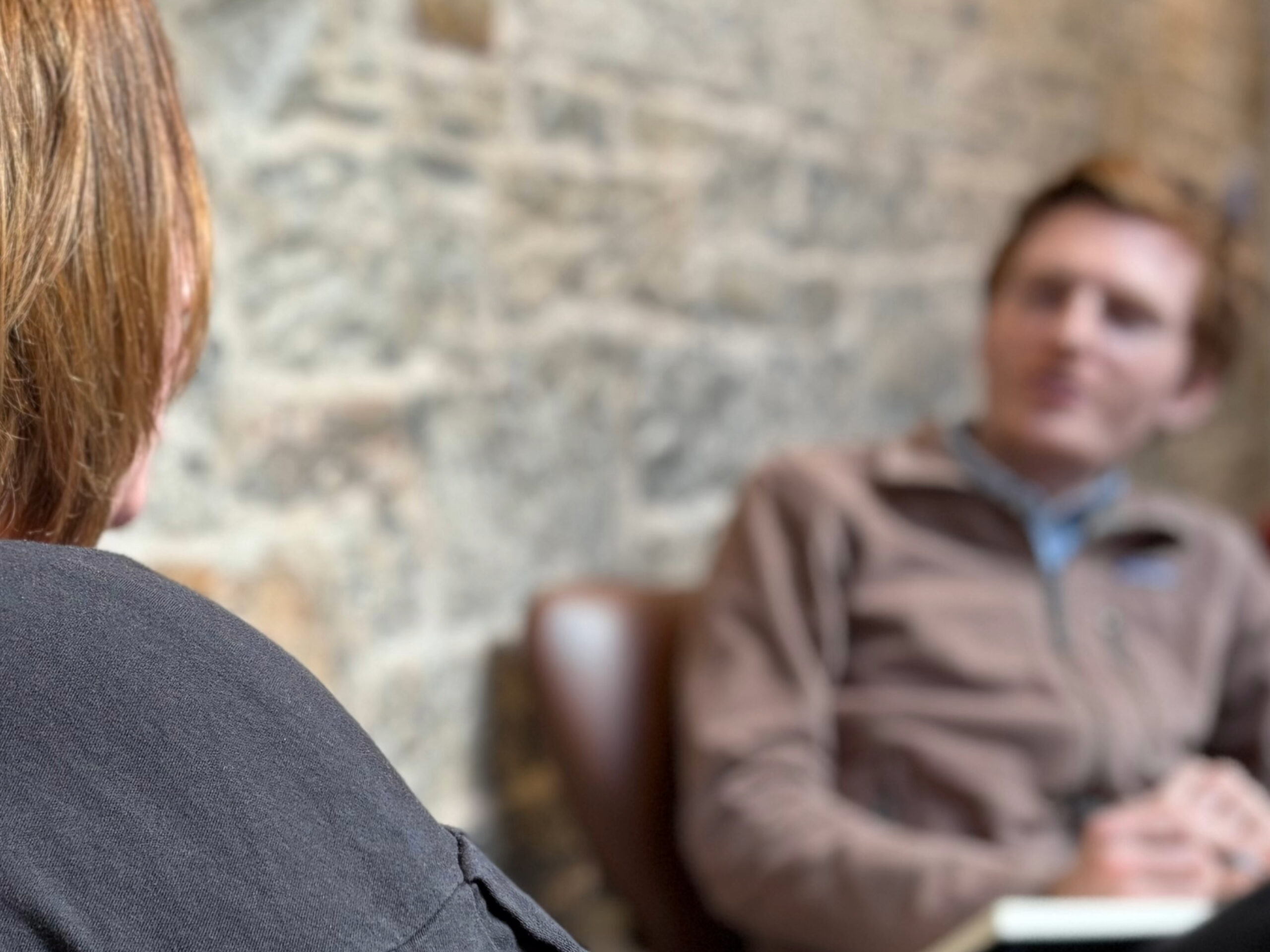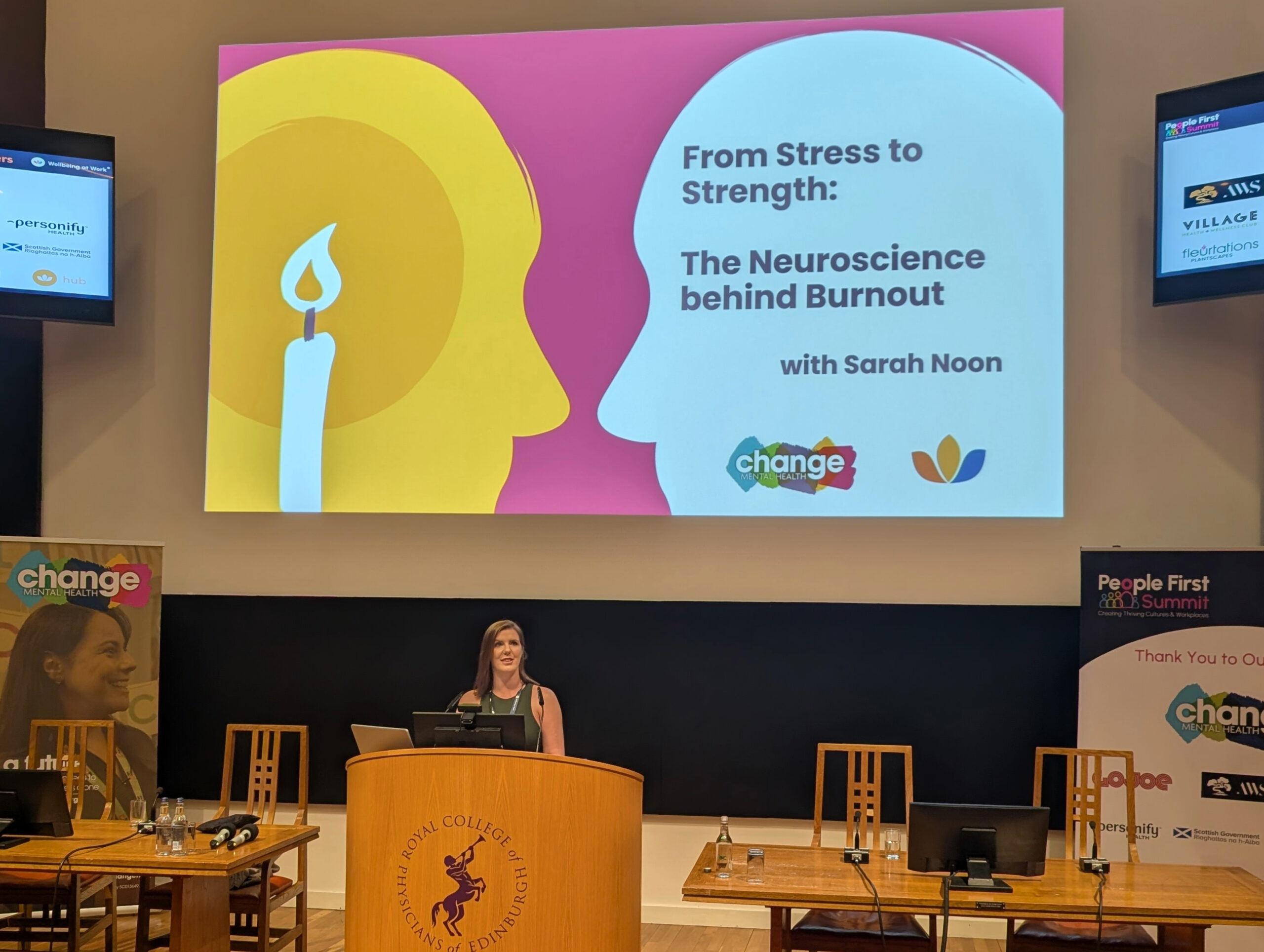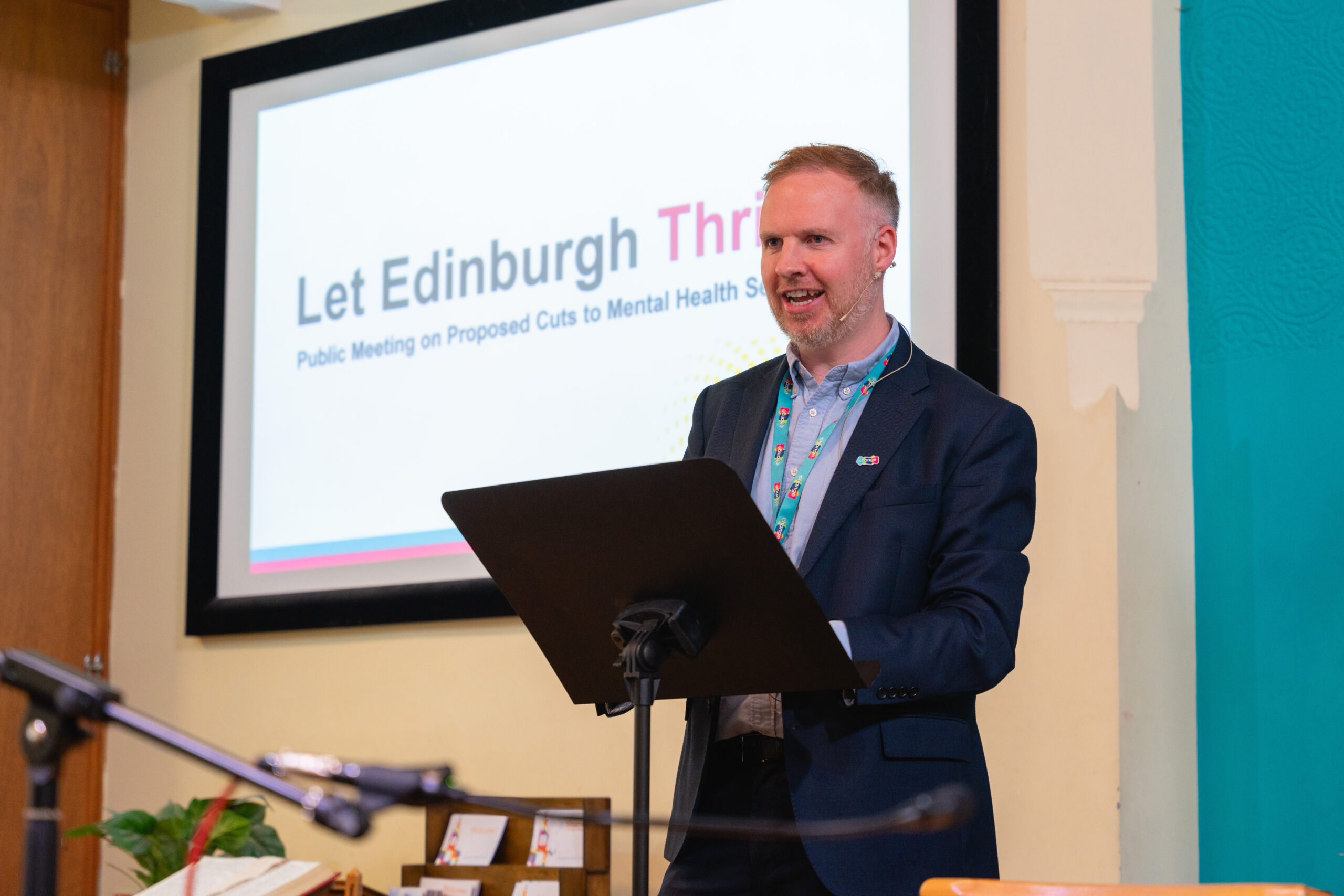Recovery is possible: Lessons from Love & Trouble and real lives
Love & Trouble explores trauma, healing and hope, featuring voices from its creators and Change Mental Health staff on what recovery can mean.
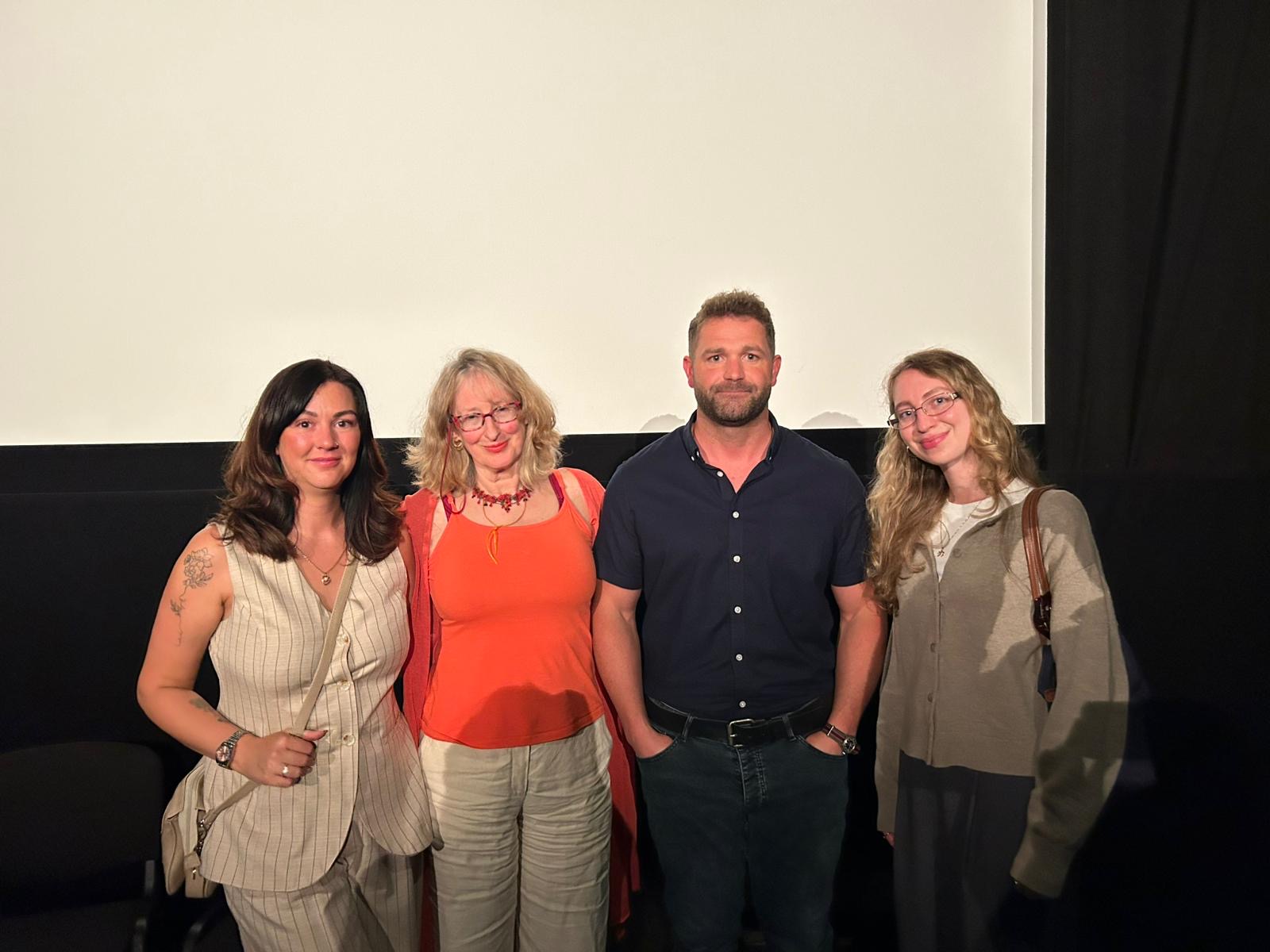
It was Thursday night in a packed cinema in Edinburgh, in the newly reopened Filmhouse. The film Love & Trouble, directed by Amy Hardie, had just concluded. The audience sat quietly, absorbing what they’d just seen.
Change Mental Health were invited as panellists for a Q&A that followed the screening, with the director and the film’s protagonists, Kerry and Kenny. As we sat in the audience watching the film, a gentleman nearby caught our attention. After the credits rolled, he leaned over and said “Wow, that was just amazing… I didn’t know recovery was possible.”
At Change Mental Health, we not only believe but know that recovery is possible. We’re delivering non-clinical, person-centred support in communities across Scotland. Recovery – with all its ups, downs, relapses and breakthroughs – is at the heart of everything we do.
But, what exactly do we mean when we say recovery is possible?
Traditionally, in clinical settings, recovery is defined as a full return to health. This includes no symptoms, being in work or education, living independently without needing help from family or carers and having social connections. To count as full recovery, these things must be sustained for at least two years.
But over time, people with lived experience of mental health challenges have helped shape a broader, more personal definition. Personal recovery is less about ticking clinical boxes and more about living as well as possible, whatever that looks like for you. It often involves hope, a sense of identity, purpose and taking personal responsibility.
Paul Caven, a Senior Support Worker at our Dumfries resource centre, asked a person we support what recovery means to them and unveiled a very personal recovery definition:
“Recovery to me means being physically and mentally at one with myself, so being functional again with practical things in life and being able to be sociable with other people – relating to things associated with a full life.
“Recovery means my mental wellbeing will be balanced in line with the ability to have emotions and behaviour, which I can control rather than medication.”
Recovery revolves around not only one’s health, but also employment, relationships and purpose. This is exactly the message of Love & Trouble. It is a beautifully honest portrait of trauma, love and recovery. Over the course of ten years, filmmaker Amy Hardie followed Kerry and Kenny – a Scottish couple navigating not only the usual pressures of life and relationships, but also the heavy weight of past trauma. Trauma that affected both of them, but in very different ways.
Kenny, a former soldier who served in Afghanistan, lives with Post-Traumatic Stress Disorder (PTSD) and experiences of moral injury. PTSD is a mental health condition caused by trauma, with symptoms like flashbacks, avoidance, dissociation, mood changes and seeing or hearing things which are not real. Moral injury refers to the psychological, emotional or spiritual distress resulting from actions (or inaction) that violate a person’s deeply held moral beliefs, in case of Kenny that was failing to prevent harm to comrades or civilians.
Kerry has endured adverse childhood experiences (ACEs) that have shaped her adult life with anxiety and deep-rooted shame. ACEs are various forms of childhood abuse (emotional, physical, sexual), neglect and family dysfunction (e.g., exposure to domestic violence, parental substance misuse or separation). Such experiences are known to influence mental health. According to a study, two-thirds of Scottish children have experienced one ACE by the age of 8 years old.
Their relationship teeters on the edge when Kenny becomes suicidal. But through Kerry’s support, self-care rituals and the help of third sector organisations they begin to find a way forward. Kerry and Kenny’s journey features talking therapy, medication, cold baths, horse therapy and psychoeducation. Kerry, determined to understand Kenny’s pain and her own, begins studying psychology. There’s a moment in the film when she has a realisation that feels almost electric: “Thoughts can change feelings.” It’s a simple idea, but it’s also the foundation of cognitive behavioural therapy and, for many, the beginning of healing.
By the end of the film, both Kerry and Kenny are working in mental health. Kenny shares his experience as a mentor in a veterans charity; Kerry runs her own business as a mental health practitioner. They’ve gone from surviving to supporting others – a full-circle moment that speaks to the strength of lived experience.
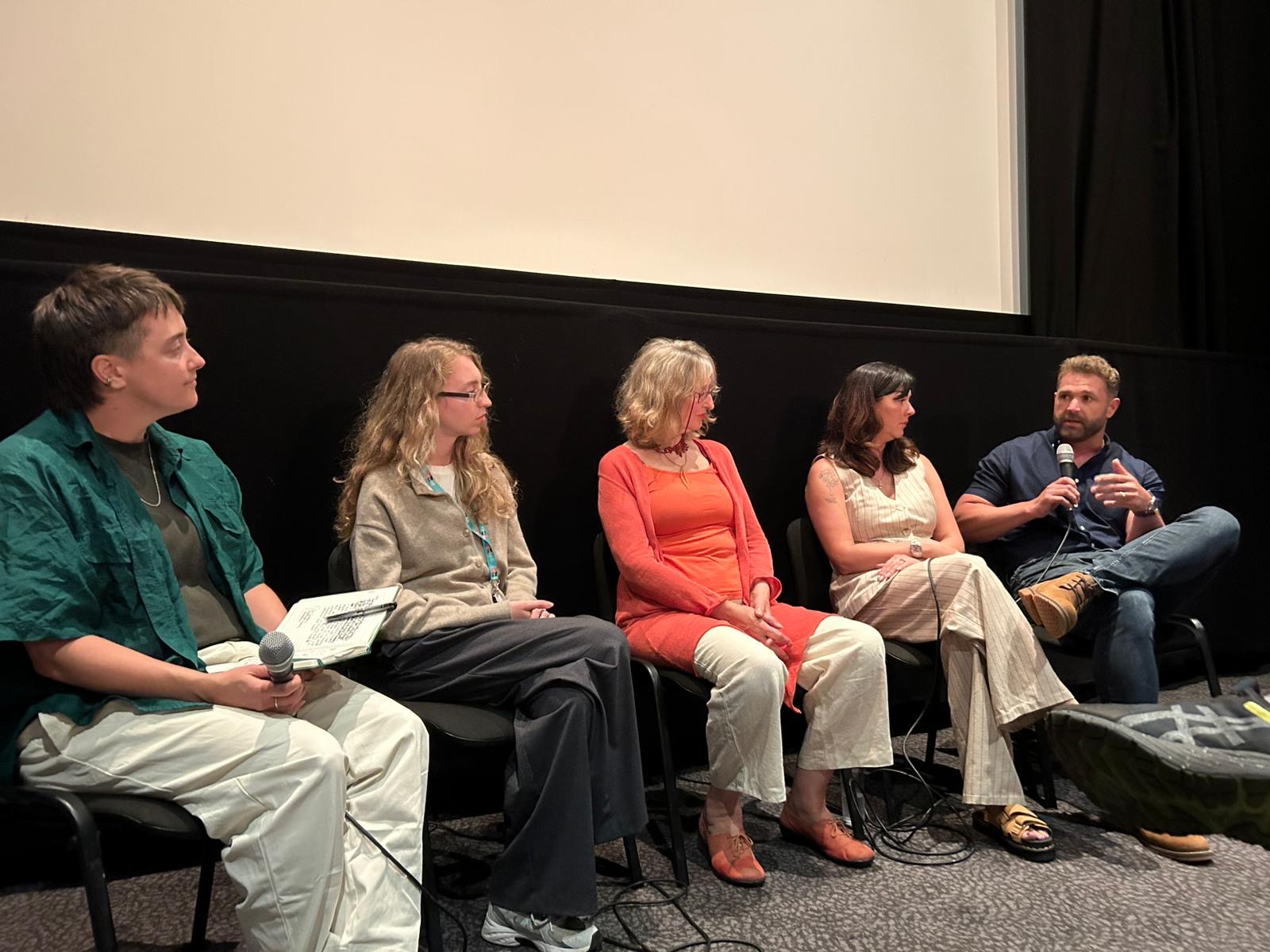
The themes in Love & Trouble echo what we see in our services, which often centre trauma work at their core. In Edinburgh, we run a specific service for men affected by trauma and all our services are working in a trauma-informed way. As you can read on our website about our Signature Project in Edinburgh:
“Our Signature Project offers tailored support for men over the age of 16 who have experienced trauma and are registered with a local GP. We also run a project tailored only to veterans with PTSD. We take a holistic approach, addressing the physical, psychological and social impacts of trauma while supporting individuals to work towards what matters most to them.”
The film also echoes how lived experience should be incorporated into mental health services and the value of peer support. Karen Law, who works as an Outreach Worker for our Hearing Voices service in Tayside, talks about how seeing that both Kenny and Kerry went on to become counsellors/therapists, echoes her own journey:
“Supporting people who hear voices or experience other sensory disturbances is deeply personal to me. I’ve seen firsthand how isolating these experiences can be, and how transformative kind, compassionate support can be.
At Change Mental Health, we’re one of the few organisations offering that kind of care, and I’m proud to bring both my personal experience and trauma-informed practice to the role. Love & Trouble beautifully captures the complexity and humanity of these experiences, and I’m honoured to be part of the work that helps people feel seen.”
She further adds: “I think it’s good that the movie talks more about ‘what now’ after people recognise how they’ve been affected by trauma in their lives and how it’s human connection that is so vital.”
Just like Kenny and Kerry, many members of our Change Mental Health team bring their own lived experience of mental health challenges and recovery. We believe in the value of lived experience – not only as a source of insight, but as a powerful force for connection, empathy and change.
Recovery, as the film reminds us, isn’t linear. It’s deeply personal. And with the right support and the right relationships, it is absolutely possible.
support
Our National Advice and Support Service can help you and people you care for with mental health concerns and money worries.
We can link and signpost you to relevant local and national support, including our own Change Mental Health services, as well supporting with debt, grants and benefits.
The service is open Monday to Friday, 10am to 4pm (closed for lunch between 12.30pm to 1.30pm). Contact 0808 8010 515, email advice@changemh.org or fill in the form on the service webpage.
For full details about the service, visit the National Advice and Support Service webpage.


